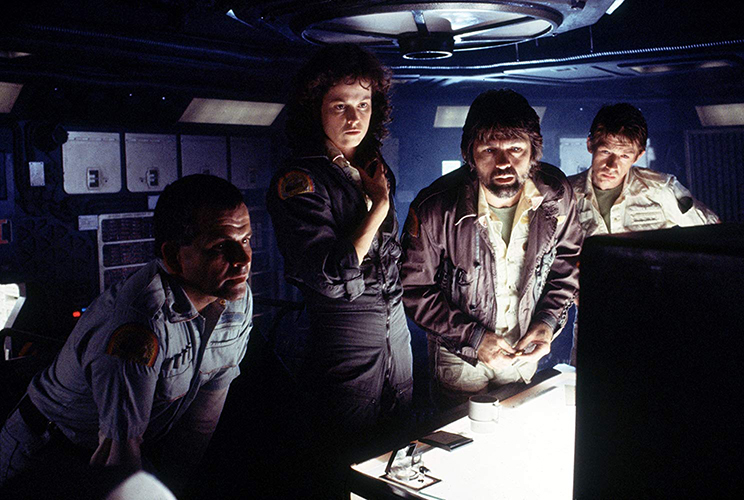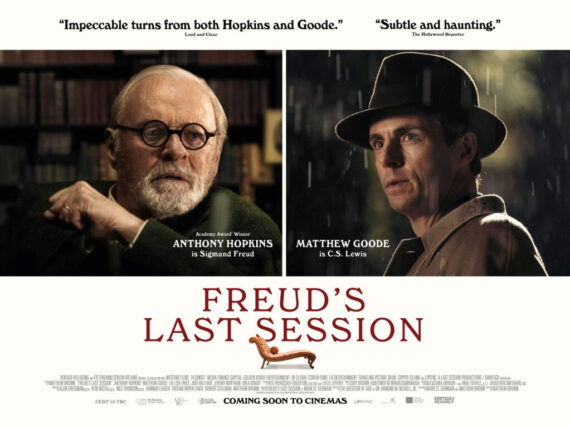Regular blog contributor Nigel Watson introduces us to Alien, which will be screened at Tinside Lido on Friday 23 August as part of our Open Air Cinema season.
‘Alien’ is a stylish science-fiction horror film that cleverly leaves much to our imagination and exploits our fears of what lurks in the bleak infinity of outer space.
The box-office success of ‘Star Wars’ and ‘Close Encounters of the Third Kind’ in 1977 created a huge demand for science fiction enabling the much loved ‘Star Trek’ TV series to be relaunched as a big-budget feature film, the revival of ‘Superman’ and a host of inferior productions quickly leaping onto the rampant SF bandwagon.
In complete contrast to these brash, glossy Hollywood blockbusters, in 1979 along came Ridley Scott’s ‘Alien.’ This introduces us to the grimey industrial interior of the spaceship Nostromo, which wakes its motley crew from suspended animation to investigate a distress signal coming from the moon LV-426.
Tellingly, the ship’s computer is called ‘Mother’ and she literally brings them back to life from their suspended state. This primes us to the fact that the whole of ‘Alien’ has the theme of motherhood, birth and death.
Encountering the huge alien spaceship, wonderfully based on the biomechanical designs by artist H.R. Ginger, the face-hugging alien (emphasising uncontrolled and blind sexuality) rapes the male body and is the site of birth for the alien. The chest-bursting alien is a grotesque parody of human childbirth, it is simultaneously an act of birth and death to the host/mother.
It is significant that the mise-en-scene of the spaceship (tubes, corridors, dampness, darkness) can be viewed as a feminine space invaded by the ‘male’ monster who is allowed in because of male greed and stupidity allied with the capitalist agenda to make a profit at any cost.
The male body, the final frontier, is finally invaded/violated and killed. As individuals or as a group the men cannot fight the alien, it is a woman, Ellen Ripley played in her career defining role by Sigourney Weaver, who is able to outsmart and evade the alien. The sexuality of the alien is ambiguous – as a face-hugger, it is a homosexual or female rapist; as a full-grown alien it takes on male characteristics.
Besides the impressive visuals, and tight script by Dan O’Cannon, ‘Alien’ went beyond being a corny B monster movie by Jerry Goldsmith’s music score, Ridley Scott’s visual flair and impressive cast comprising of Tom Skerritt as Dallas, Veronica Lambert as Lambert, Harry Dean Stanton as Brett, John Hurt as Kane and Yaphet Kotto as Parker.
Like Scott’s next film ‘Blade Runner,’ released in 1982, ‘Alien’ and much of science fiction there is an obsession with giving birth to, or the creation of ‘monsters.’ The archetypal story is that of Dr. Frankenstein’s monster, who is the product of our tampering with nature. Although huge and strong the monster is also helpless and inexperienced, his stumbling gait and constant grasping for things is reminiscent of a toddler’s behaviour. Partly it is the ignorance and arrogance of science, partly the superstitions and fears of the common people that spell his doom. In ‘Alien’ the monster is a force of nature that simply regards humans as something to kill, we are given no idea of what its motives are and this makes it all the more frightening.
Nigel Watson









Comments
Comments are closed.